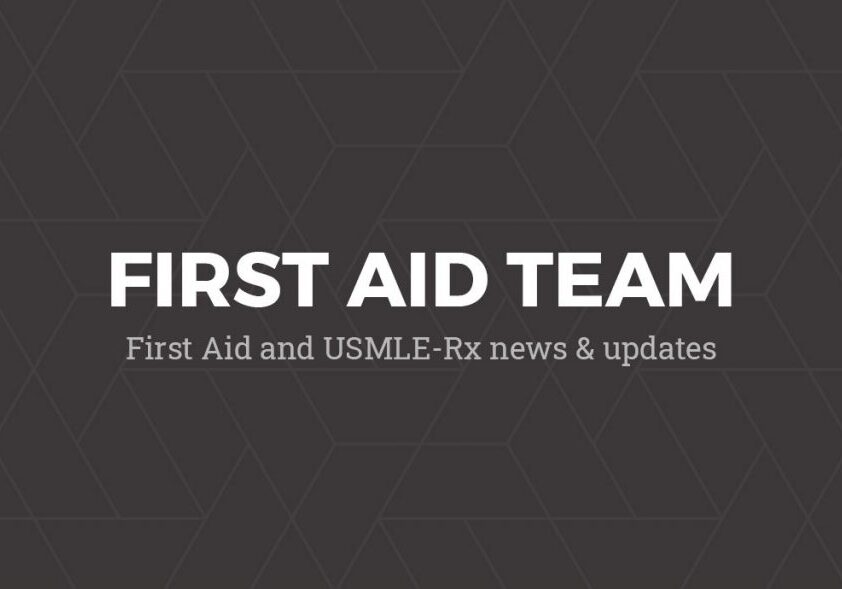You just started medical school and are beginning to get used to the routine of lectures, labs, studying, and taking tests. While this is quite nostalgic of your undergraduate days, medical school will certainly challenge you in different ways. To help you navigate the next four years, we’ve prepared an overview of what to expect and when to make those important decisions.
Year 1:
This is your opportunity to learn basic science well, seek out an advisor or mentor in the medical school that can monitor your progress, and join a few interest groups/clubs. During this time, learn from your classmates and upper classmen about how to do well on exams. Throughout Years 1/2/3, your medical school will inform you of specialty panels and information group sessions, so make every effort to attend. In the second half of this year, spend some time to find out what you want to do for the summer; it can include research, volunteering, traveling, etc.
The Successful First Year Medical Student: https://firstaidteam.com/1999/the-successful-first-year-medical-student
Year 2:
This year will be a continuation of basic science with more emphasis on pathophysiology and pharmacology. Depending on how your medical school is set up, you will take your USMLE Step 1 Exam at the end of this year or at the end of your clinical year (aka Year 3). Doing well on this exam is critical, especially if you are picky about where you want to do residency and if you want to go into a competitive field. By looking at the latest Charting Outcomes in the Match (http://www.nrmp.org/data/chartingoutcomes2011.pdf) data, you can assess the competitiveness of specialties and appropriately align your goals.Study Schedules: https://firstaidteam.com/schedules
Surviving Step 1: Creating a Study Schedule:
https://firstaidteam.com/3521/surviving-step-1-creating-a-study-schedule
Surviving Step 1: Guide to Self-Assessments
https://firstaidteam.com/3647/surviving-step-1-guide-to-self-assessments
Surviving Step 1: Choosing a Question Bank
https://firstaidteam.com/3341/surviving-step-1-choosing-a-question-bank
Surviving Step 1: Setting Goals for Step 1
https://firstaidteam.com/3341/surviving-step-1-choosing-a-question-bank
Surviving Step 1: Preparing for the Boards
https://firstaidteam.com/3293/preparing-for-the-boards
Year 3:
You just crushed your Step 1 and you are ready to hit the clinics, aka the wards. All medical schools require completion of a yearly curriculum which typically emphasizes surgery, internal medicine, pediatrics, ob/gyn, psychiatry, neurology, emergency medicine, and family medicine. Perhaps you will find out that you love delivering babies or you absolutely cannot stand being in the operating room. This is your chance to get your feet wet and find out which core specialties you may or may not want to pursue.
Each rotation will have a shelf exam and you will get a final grade. Again, regardless of the grading system used at your medical school, it is important to aim to be in the top 25% for each rotation, especially if you are interested in a competitive residency. The majority of schools who have an Alpha Omega Alpha (AOA) chapter (the NHS of high school or the Phi Beta Kappa of undergrad) place the greatest emphasis on USMLE Step 1 and Year 3 grades.
Again, throughout this time, meet with your advisor/mentor every 3-6 months so that you are able to nurture your career interests and prepare for Year 4.
8 Ways to Jump Start Your Third Year Away Rotations: https://firstaidteam.com/3356/8-ways-to-jump-start-your-third-year-away-rotations-search
Preparing for Shelf Exams: https://firstaidteam.com/1511/preparing-for-shelf-exams
Year 4:
You just finished your core clerkships, congrats! Now you are able to spend some time doing elective rotations, prepare your application for residency (CV, LORs, personal statements), go on interviews, and even take your USMLE Step 2.
Depending on your personal preferences and the specialty you choose, elective rotations can be done at your home institution and/or away at another institution. This will be your last chance to determine what field of medicine you want to apply for.
The USMLE, Match & Residency Timelines: https://firstaidteam.com/2393/the-usmle-match-residency-timelines
Visiting Student Application Service (VSAS): https://firstaidteam.com/3880/visiting-student-application-service-vsas
Step 2 CS: https://firstaidteam.com/3839/5-tips-to-help-you-do-well-on-the-step-2-cs-using-first-aid-for-step-2-cs
Each year in medical school, you will gain further appreciation for medicine and patient care. From your basic science through your transition to the wards, the notion of “what do I want to do when I graduate medical school” will become clearer. You will explore different subjects further than you had anticipated, find yourself spending more time on certain types of patients, or even develop an appreciation for a particular attending’s style of teaching and/or patient care. Your career choice is what you will ultimately dedicate a majority of your life. Therefore, as a student, you must spend significant time exploring and developing your career interests, seek out an advisor or mentor, be aware of the credentials required, and stay clear of the challenges ahead.
References
https://www.aamc.org/students/medstudents/cim/
https://www.aamc.org/students/medstudents/cim/cim_timeline/
https://services.aamc.org/careersinmedicine/
https://www.aamc.org/students/medstudents/


